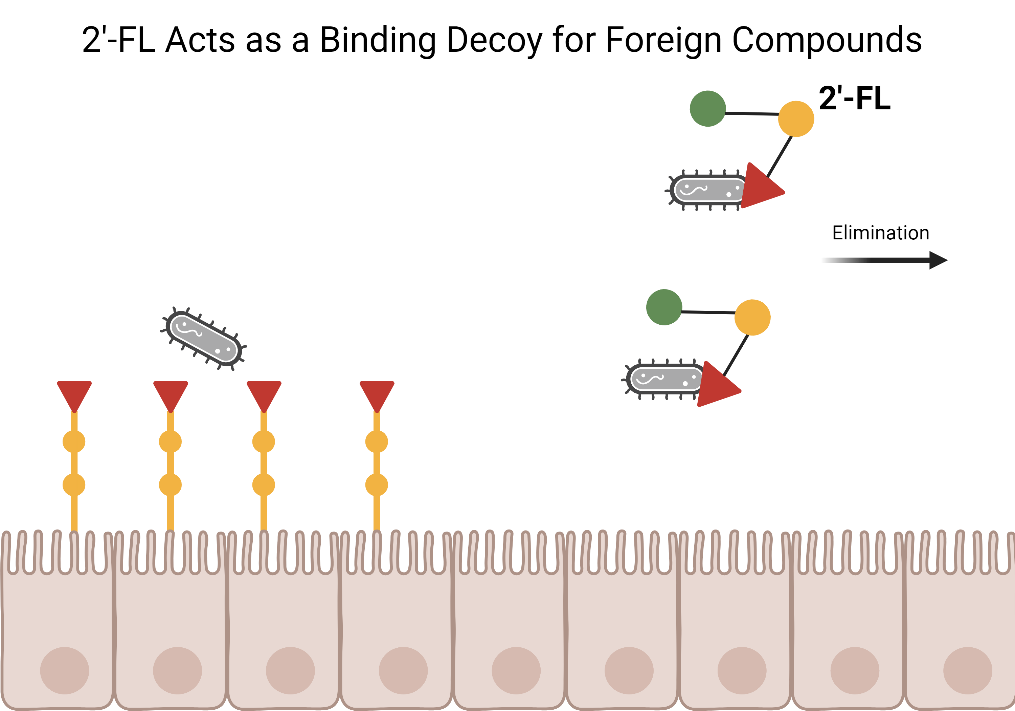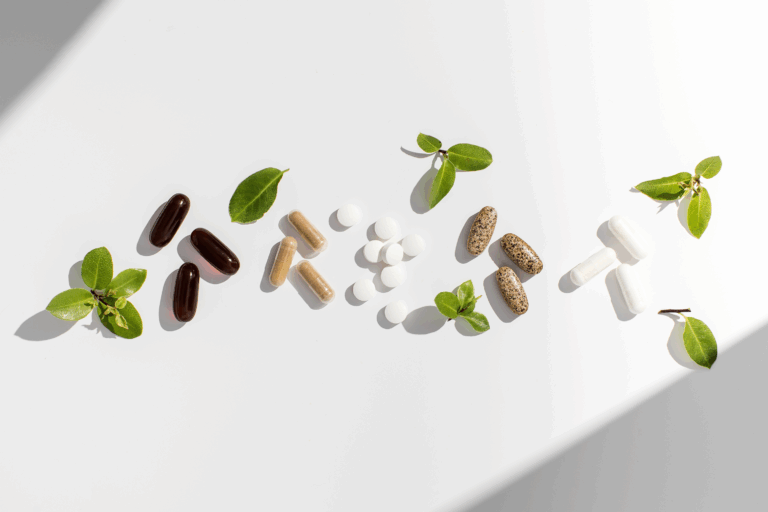Supporting Children’s Immune Health through the Microbiome, Micronutrients, and Medicinal Herbs
Children are exposed to new biological insults as they interact with their environment. Because of this, their bodies quickly learn to respond and adapt to the external world. A healthy immune system is critical to this response, protecting the body from infection and, in some cases, developing a memory that will stay with them throughout adulthood.
Gut Microbiome
Maintaining a healthy digestive tract is essential for children’s overall and immune health. As they grow, children develop their gut microbiome, a collection of bacteria, viruses, and fungi in the gastrointestinal (GI) tract. The gut microbiome in both kids and adults affects other areas of the body, including the brain and immune system. Certain dietary compounds can change the composition of the gut microbiome, including prebiotics, which act as food for the bacteria in the gut.
2’-fucosyllactose (2’-FL) is a compound found in breast milk that functions as a prebiotic. It can avoid digestive enzymes, allowing it to reach the lower GI tract. There, it can act as food for bacteria in the gut. However, not just any bacteria can use it for nutrition and energy; a specific group of good bacteria (called Bifidobacteria) are uniquely able to utilize 2’-FL. These bacteria are health-promoting bacteria, and feeding them 2’-FL can help their population flourish while limiting the growth of potentially harmful bacteria through competition for food and resources.1,2 Decreased levels of Bifidobacteria are commonly seen in GI conditions and metabolic diseases.1,3,4
In addition to feeding good bacteria in the gut, 2’-FL can act as a binding decoy, tricking toxins and pathogens into binding to it, which can prevent invasion into the body.1 2’-FL has a similar structure to certain binding sites on cells in the GI tract. Because of this similarity, biological toxins and external bacteria will bind to 2’-FL instead of to cells in the GI tract, which prevents them from launching infections.1

Supporting the gut microbiome is especially important in babies because it is underdeveloped at birth. As babies grow into healthy children, 2’-FL can continue to support health, even into adulthood. After breastfeeding, supplementation with 2’-FL can help promote a healthy gut microbiome composition, support the development of the intestinal immune system, and help improve symptoms of chronic GI conditions.2,3
Micronutrients
In addition to dietary compounds like 2’-FL, micronutrients are essential for children’s immune health. The same vitamins and minerals that keep the adult immune system firing on all cylinders also support immune health in kids. Vitamin C stimulates the immune system and mitigates damage that can occur due to an infection, while vitamin D is important for communication among immune cells.5 Zinc is an important mineral for cells that rapidly divide, including those in the immune system.5 It also helps produce antibodies and keeps the skin healthy, a critical first line of defense against potential invaders.5
Medicinal Herbs
Medicinal herbs can also support immune health in children and adults. Elderberry is a particularly good option for children’s immune health. It contains high concentrations of compounds only found in plants, including anthocyanins which can be found in red, blue, and purple plants. Anthocyanins work as antioxidants in the body and help support the immune system’s natural response to an infection.6
Children are especially vulnerable to pathogens due to their developing immune systems in a world of new triggers. Providing additional support through vitamins, minerals, herbs, and 2’-FL can enhance the immune response and provide both acute and long-lasting immune support.
- Bode, L. (2012). Human milk oligosaccharides: every baby needs a sugar mama. Glycobiology, 22(9):1147.
- Bosheva, M., Tokodi, I., Krasnow, A., Pedersen, H.K., Lukjancenko, O., Eklund, A.C., et al. (2022). Infant Formula With a Specific Blend of Five Human Milk Oligosaccharides Drives the Gut Microbiota Development and Improves Gut Maturated Markers: A Randomized Controlled Trial. Front Nutr, 9:920362.
- Ryan, J.J., Monteagudo-Mera, A., Contractor, N., Gibson, G.R.(2021). Impact of 2’-Fucosyllactose on Gut Microbiota Composition in Adults with Chronic Gastrointestinal Conditions: Batch Culture Fermentation Model and Pilot Clinical Trial Findings. Nutrients, 13(3):938.
- Elison, E., Vigsnaes, L.K., Krogsgaard, L.R., Rasmussen, J., Sorensen, N., McConnell, B., et al. (2016). Oral supplementation of healthy adults with 2’-O-fucosyllactose and lacto-N-neotetraose is well tolerated and shifts the intestinal microbiota. Br J Nutr, 116(8):1356.
- Maggini, S., Wintergerst, E.S., Beveridge, S., Hornig, D.H. (2007). Selected vitamins and trace elements support immune function by strengthening epithelial barriers and cellular and humoral immune responses. Br J Nutr, 98 Suppl 1:S29.
- Torabian, G., Valtchev, P., Adil, Q., Dehghani, F.(2019). Anti-influenza activity of elderberry (Sambucus nigra). J Funct Food, 54:353.







